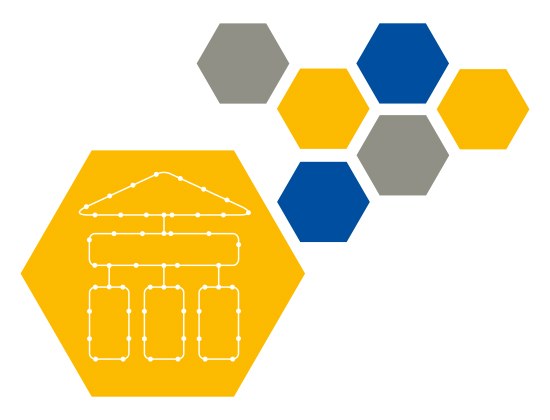Organizational structure

We will develop and transform our organizational structures in order to leverage the potential offered by digital work,
learning and research.
Structural transformation
For this set of objectives, the University of Bonn is focusing on transforming and evolving its own organizational structures and culture to enable the potential offered by working, learning and researching digitally to be harnessed to the full.
Structures that support research
The Research Data Service Center helps University members to implement and shape the open-science principle by providing suitable infrastructure and consulting services that are to be supplemented by findings from the work done by the Academic Advisory Board on Research Data.
In the future, the effective use of the central HPC infrastructure and corresponding training and consulting services in a holistic IT ecosystem and their strategically vital further development will be planned jointly by the HPC/A Lab, University IT and an academic advisory board made of subject experts.
Through the Bonn Center for Digital Humanities, the Faculty of Arts advises and supports all researchers in the humanities on using and developing digital methods and tools.
Strategic management
The University of Bonn is piloting a research information system as part of the CRIS.NRW project within the DH.NRW alliance to ensure quality-assured, data-driven reporting on its research activities and their contexts and to set up processes for data gathering.
Execution of the University of Bonn’s digital strategy is a continuous, ongoing process. The DiCe structure and our portfolio of various digitalization projects promote transparency, networking, targeted investment and oversight of change processes. Target group-oriented training concepts and documentation are provided, in connection with DiCe projects in particular, to ensure adequate support for University staff and students.
Staff members of the organizational units that provide central IT operation and research-related IT services are to be brought together and housed in an attractive building, helping ensure the University’s long-term development in regard to digitalization, affording synergies and benefits for employee retention and recruitment. The corresponding service and training offerings are to be centralized within the building as well.
Innovative services structure
The University is also continuing to digitalize its administrative processes to implement its innovative services structure.
Digitalization of administrative processes
The triad formed by the Digitalization of Administrative Processes program (PDaP), the Human Resource Development, Organizational Development and Healthcare Management, and the EGovG/OZG Coordinator provides a sustainable structure for implementing the provisions of the German E-Government Act (EGovG), the Online Access Act (OZG), the efforts by the universities in North Rhine-Westphalia (NRW) that have been organized on a consortium basis to this end, and the University’s own requirements for digitalizing its administrative processes. The structured and coordinated implementation of these digitalization projects within the administration as well as their ranking by priority have been brought together in a roadmap that is updated on an ongoing basis.
Campus app
The University of Bonn’s technical basis and processes, including student, examination and classroom administration, will be updated as part of the rollout project for the new campus management system.
Mobile applications, including for providing access to student transit passes and library cards, are to be developed for students and staff in 2023 as part of the Campus-App.NRW project in partnership with the University of Duisburg-Essen.
Collaboration
Not least from the lessons it has learned from the pandemic, the University of Bonn has recognized the potential offered by working anywhere and at any time of day. This has resulted in a University-wide Civil Service Staff Council Agreement and is now being practiced on a daily basis with the aid of tools for digital collaboration (see also the Atlassian and Videoconferencing projects).
Details of other sets of objectives
Infrastructure for research, teaching and services
We will continue to develop our secure and future-proof IT infrastructure.
Digital skills
We will incorporate, promote and harness the individual digital skills of our members.
New spaces for encounters
We will create new spaces for virtual and in-person encounters, interaction and collaboration at the University.


